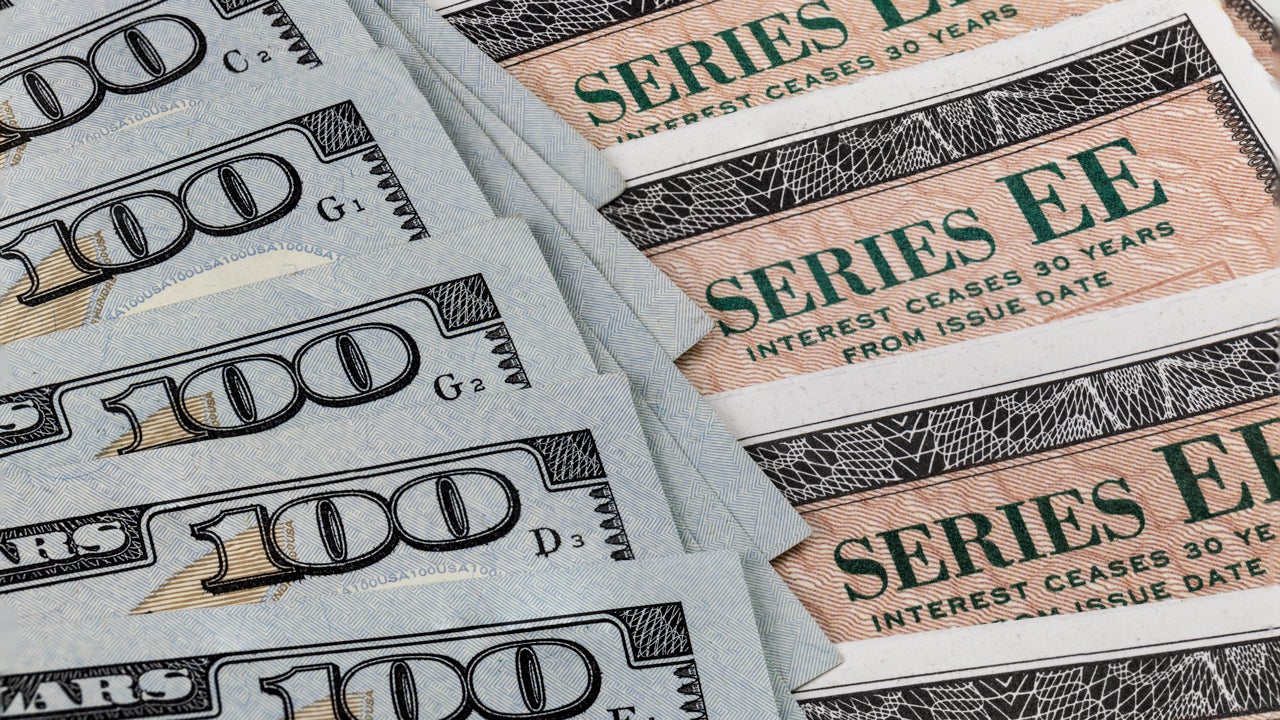CDs vs. money market accounts: Which is best for you?

When building your savings, it is important to choose an account that offers a competitive interest rate and allows you to access your money like you want and need to.
Money market accounts (MMAs) and certificates of deposit (CDs) each provide a boost to your savings by offering competitive rates but differ in how they allow you to access your money and how said interest rate fluctuates.
Both accounts are readily available and can be found at traditional banks, online-only banks and credit unions, providing consumers with lots of options.
Key takeaways
- CDs usually offer higher interest rates than money market accounts.
- CD interest rates are usually fixed for the term of the CD, whereas money market account interest rates are variable.
- Money market accounts are better suited for those who need easy access to their funds, while CDs are ideal for those with long-term savings goals.
- In many cases, money market accounts offer a debit card and/or a checkbook, which makes it easier to access your savings when you need them.
CD vs. money market
CDs and money market accounts are both types of savings accounts that help you stow away extra funds and grow your savings with interest.
Money market accounts are a hybrid of a checking and savings account. They earn interest but also often allow you to access your funds with an ATM card or checkbook. CDs, on the other hand, are more restrictive. With most CDs, you’ll have to pay a penalty if you want to withdraw your money before the CD matures.
Here are some key differences between CDs and money market accounts:
| Account type | Rates | Access to funds | Monthly fees |
| CD | Fixed interest rate for the length of the CD. | Restricted access; penalty for early withdrawal. | N/A |
| Money market account | Variable, just like regular savings accounts. | Access funds at any time. | Varies by bank. |
Both CDs and money market accounts are federally insured as long as they are opened at banks insured by the Federal Deposit Insurance Corp. (FDIC) or credit unions with insurance from the National Credit Union Administration (NCUA). These entities insure your funds up to $250,000 per institution and account ownership type (such as single vs. joint account). With NCUA and FDIC insurance, your principal and earned interest, up to the stated limits, are protected if your bank fails.
How money market accounts work
A money market account, like other regular savings accounts, pays a variable interest rate, which means the stated annual percentage yield (APY) can rise and fall depending on market conditions.
Money market accounts typically come with a debit card and/or checkbook, making it easier to access your funds than most traditional savings accounts.
Note, though, that there may be limits to how many times you can move money out of your account. There used to be a federal cap to limit withdrawals to six a month, and some banks still follow the rule even though the Federal Reserve removed the limit in response to the coronavirus pandemic. Contact your bank to confirm its withdrawal and transfer policies.
Money market accounts are different from money market funds. Money market funds are an investing option and aren’t federally insured or regulated.
How CDs work
A certificate of deposit, often called share certificates at credit unions, most often pays a fixed interest rate for the length of the CD. In exchange for the guaranteed rate, you agree to lock up your money until the CD matures – anywhere from three months to 10 years.
If you do need your money before your CD term length is up, you’ll likely pay an early withdrawal penalty, usually a few months’ interest. If you’re not sure you can tie your money up in a CD but still want the benefit of a guaranteed rate, you could consider a no-penalty CD.
Oftentimes, longer-term CDs, such as five-year CDs, tend to pay higher rates than shorter-term CDs, like six-month CDs and one-year CDs.
No matter what term you choose, you can use Bankrate’s CD calculator to see how much interest you’ll earn.
When to choose a money market account
A money market account is a good way to grow your savings, but it’s not the best fit for everyone. Here are two situations when a money market account makes sense:
You want easy access to your funds
Money market accounts are known for their easy accessibility to funds. That makes it a good place to stash an emergency fund, since you may need immediate access to savings if an emergency does occur. With a CD, you’d likely incur a withdrawal penalty should you decide to take funds before its term ends.
You’re looking for a short-term boost to savings
Money market accounts often offer competitive interest rates and provide a better return than a traditional savings account, though you can find similar (or higher) APYs with the best high-yield savings accounts.
A higher APY can go a long way toward helping you achieve a short-term savings goal. Use a compound interest calculator to see how much your savings could earn at different interest rates.
When to choose a CD
CDs are a good choice for growing a chunk of money you’ve already saved to be used at a later date. That’s because with most CDs, you deposit the full amount you’ll be tying up at once, instead of adding to your balance, like you would with a money market account.
CDs can help you grow your savings over a longer term, and keep you from spending the money. Here are some situations when a CD might be a good option for you.
You want to lock in a high APY
If you’re looking to earn more interest, a CD often offers higher rates than a money market account. Plus, CDs usually have fixed rates. That means you’ll earn the same rate for the entirety of the CD’s term.
You have a long-term plan for these funds
When you open a CD, you are choosing to lock your funds away for a specified period. If you have a specific plan for some of your funds — and won’t need to tap them in an emergency — then a CD might be a good fit.
If you plan to buy a house in five years, for example, a CD could be the right place to stash a down payment. It allows you to take advantage of the most competitive interest rates, preserving and growing the funds until you’re ready to purchase your home. Plus, unlike investing in stocks, there’s no worry about losing money in a federally-insured CD.
You want your savings locked away
CDs can help you exercise some financial discipline. Since withdrawing money before the end of a term comes with a penalty, usually three to six months worth of interest, a CD could help keep you from dipping into your savings.
What to look for in a money market account or CD
You can open an MMA or CD at many banks and credit unions, both online-only and brick-and-mortar institutions. Before you on a CD or an MMA, shop around.
- Compare rates. The rates and terms at online banks can be significantly better than those at brick-and-mortar banks.
- Avoid fees. You won’t find monthly fees for CDs, but it’s not unlikely for MMAs. Find an account that either doesn’t charge that fee or has easy requirements to waive it.
- Check the access to funds. With a CD, consider the term that works best for you so you can avoid the withdrawal penalty. With an MMA, look for any withdrawal limits that you might come up against.
- Get the whole picture. Choose the financial institution that best suits your needs. The bank’s customer service hours and types should work with your schedule and preferences, for example.
Learn more about how to choose a CD
Bottom line
Choosing between a money market account or a CD means you need consider both rates and accessibility to your cash. Determine your goals for your money before making either choice.
Why we ask for feedback Your feedback helps us improve our content and services. It takes less than a minute to complete.
Your responses are anonymous and will only be used for improving our website.







